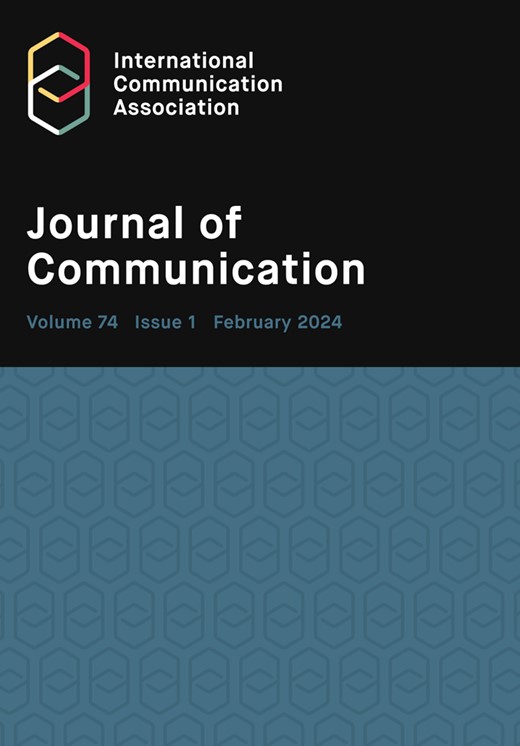Partisan news users in the United States and India on either side seldom use fact checkers
IF 5.5
1区 文学
Q1 COMMUNICATION
引用次数: 0
Abstract
Fact checkers have low reach, and their limited efficacy is often attributed to perceived partisanship. Yet little research exists investigating the reach of or engagement with fact checkers among their intended audiences. We argue that given their small audience size, fact checkers’ usage is likely driven by heavy media users regardless of their partisan leanings. We examined a slice of Twitter (X) users, following certain partisan and fact checking outlets from India and the United States. Our analysis of over 7 million news users suggests that exposure to and engagement with fact checkers remains largely restricted to heavier users, with little evidence that these interventions penetrate among selectively partisan news audiences. This study is thus among the first to highlight complementary explanations for the limited efficacy of fact checkers beyond the partisan inclinations of either audiences or news outlets.美国和印度两国的党派新闻用户很少使用事实核查员
事实核查员的影响范围很低,他们有限的效力通常归因于感知到的党派偏见。然而,很少有研究调查事实核查员在其目标受众中的影响范围或参与程度。我们认为,鉴于他们的受众规模小,事实检查员的使用可能是由大量媒体用户驱动的,而不管他们的党派倾向如何。我们调查了一小部分Twitter (X)用户,跟踪了来自印度和美国的某些党派和事实核查机构。我们对700多万新闻用户的分析表明,事实核查者的曝光和参与在很大程度上仍然局限于重度用户,几乎没有证据表明这些干预渗透到有选择地偏袒新闻受众中。因此,这项研究是第一批强调事实核查人员有限效力的补充解释,超越了受众或新闻媒体的党派倾向。
本文章由计算机程序翻译,如有差异,请以英文原文为准。
求助全文
约1分钟内获得全文
求助全文
来源期刊

Journal of Communication
COMMUNICATION-
CiteScore
11.60
自引率
5.10%
发文量
41
期刊介绍:
The Journal of Communication, the flagship journal of the International Communication Association, is a vital publication for communication specialists and policymakers alike. Focusing on communication research, practice, policy, and theory, it delivers the latest and most significant findings in communication studies. The journal also includes an extensive book review section and symposia of selected studies on current issues. JoC publishes top-quality scholarship on all aspects of communication, with a particular interest in research that transcends disciplinary and sub-field boundaries.
 求助内容:
求助内容: 应助结果提醒方式:
应助结果提醒方式:


